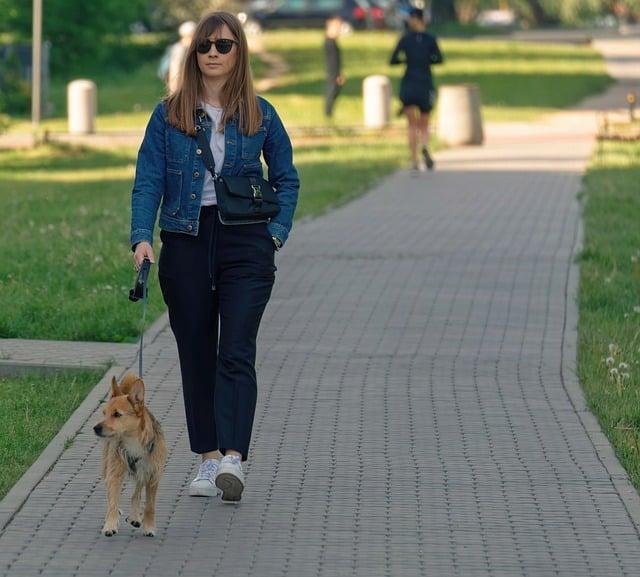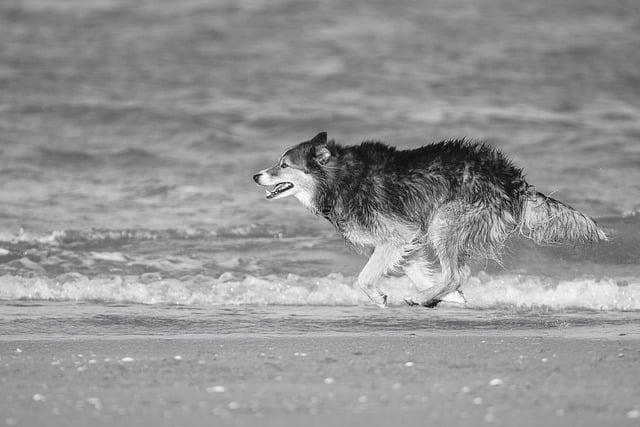In a quiet neighborhood, a family faced a terrifying break-in. As the intruder crept through the shadows, their loyal German Shepherd, Max, sprang into action. His deep bark echoed through the halls, sending the intruder fleeing. The family realized that Max was more than just a pet; he was their protector. Guard dogs like Max not only deter crime but also provide peace of mind. Investing in a trained guard dog can be a life-changing decision, ensuring safety and security for your loved ones. Are guard dogs worth it? Absolutely.
Contents
- Evaluating the Effectiveness of Guard Dogs in Home Security
- Understanding the Financial Investment and Long-Term Costs of Guard Dog Ownership
- Choosing the Right Breed: Factors to Consider for Optimal Protection
- Training and Maintenance: Ensuring Your Guard Dog is a Reliable Asset
- Q&A
Evaluating the Effectiveness of Guard Dogs in Home Security
When considering the role of guard dogs in home security, it’s essential to assess their effectiveness compared to traditional security measures. Guard dogs offer a unique advantage due to their natural instincts and ability to detect intruders. Unlike alarm systems that rely on technology, dogs possess an innate sense of awareness, often sensing danger before it manifests. This proactive approach can deter potential intruders simply by the presence of a vigilant canine.
Moreover, the psychological impact of having a guard dog cannot be overstated. The mere sight of a large, protective breed can serve as a powerful deterrent to would-be criminals. Many studies indicate that homes with dogs are less likely to be targeted by burglars. This is because the risk of confrontation with a dog is often perceived as too high, leading to a significant reduction in break-ins. In this way, guard dogs not only provide physical protection but also create a sense of security for homeowners.
In addition to their deterrent capabilities, guard dogs can also be trained to respond to specific threats. With proper training, they can alert homeowners to unusual activity, bark to signal danger, or even intervene if an intruder breaches the property. This level of responsiveness adds an extra layer of security that static systems cannot replicate. Furthermore, the bond between a dog and its owner fosters a heightened sense of vigilance, as owners become more attuned to their dog’s behavior and signals.
Lastly, the investment in a guard dog can be viewed as a long-term security solution. While initial costs may include purchasing the dog and training, the ongoing benefits of companionship, loyalty, and protection can outweigh these expenses. Additionally, guard dogs require regular exercise and engagement, which can promote a healthier lifestyle for their owners. In essence, the presence of a guard dog not only enhances home security but also enriches the lives of those who welcome them into their homes.
Understanding the Financial Investment and Long-Term Costs of Guard Dog Ownership
Owning a guard dog is not just a matter of bringing home a furry companion; it involves a significant financial commitment that extends beyond the initial purchase price. When considering the costs associated with guard dog ownership, potential owners should account for various factors that contribute to the overall investment. These include the cost of the dog itself, which can vary widely based on breed, training, and lineage. Additionally, expenses such as veterinary care, food, and supplies must be factored into the budget, as these ongoing costs can accumulate quickly.
Training is another critical aspect that can significantly impact the financial investment. Professional training is often necessary to ensure that a guard dog is well-behaved and effective in its protective role. This can involve enrolling in specialized training programs, which may range from a few hundred to several thousand dollars, depending on the level of expertise required. Furthermore, regular maintenance training is essential to keep the dog sharp and responsive, adding to the long-term costs of ownership.
Beyond the direct costs associated with the dog, potential owners should also consider the implications of liability and insurance. Guard dogs, by their very nature, can pose risks, and having one may necessitate higher homeowner’s insurance premiums or even specialized liability coverage. This added expense can be a significant factor in the overall cost of ownership, and it’s crucial to consult with insurance providers to understand the potential financial implications fully.
Lastly, the emotional and lifestyle investment should not be overlooked. A guard dog requires time, attention, and training, which can affect personal schedules and family dynamics. Owners must be prepared for the commitment of daily exercise, socialization, and mental stimulation to ensure their dog remains healthy and effective as a protector. This lifestyle adjustment can lead to indirect costs, such as changes in leisure activities or travel plans, further emphasizing the need for a comprehensive understanding of the financial and long-term implications of guard dog ownership.
Choosing the Right Breed: Factors to Consider for Optimal Protection
When considering a guard dog, it’s essential to evaluate various factors that contribute to the effectiveness of the breed in providing protection. **Temperament** plays a crucial role; breeds known for their loyalty and protective instincts, such as German Shepherds or Rottweilers, often excel in guarding roles. Look for dogs that exhibit confidence, alertness, and a natural inclination to protect their family and territory. A dog that is overly aggressive may pose a risk, while one that is too timid may not provide the necessary protection.
Another important aspect to consider is the **size and strength** of the breed. Larger breeds can be more intimidating to potential intruders, while their physical strength can be advantageous in a protective situation. However, size should not be the sole criterion; a smaller breed, like a Belgian Malinois, can be equally effective due to its agility and intelligence. Assess your living environment and choose a breed that fits well within your space and lifestyle, ensuring that it can perform its protective duties effectively.
**Energy levels** and exercise requirements are also critical factors. A high-energy dog needs regular physical activity to remain healthy and well-behaved. Breeds like Doberman Pinschers or Boxers thrive on exercise and mental stimulation, which can enhance their protective instincts. Conversely, a breed that requires less exercise may not be as effective in guarding, as boredom can lead to undesirable behaviors. Ensure you can commit to the exercise needs of the breed you choose to maintain its physical and mental well-being.
Lastly, consider the **training and socialization** needs of the breed. A well-trained dog is not only more effective in protection but also safer to have around family and visitors. Some breeds are more receptive to training than others, making it essential to choose one that aligns with your experience level. Early socialization is equally important; exposing your dog to various environments, people, and situations can help it distinguish between normal activities and potential threats, enhancing its protective capabilities.
Training and Maintenance: Ensuring Your Guard Dog is a Reliable Asset
Investing in a guard dog goes beyond simply acquiring a canine companion; it requires a commitment to proper training and ongoing maintenance. A well-trained guard dog can be an invaluable asset, providing not only protection but also peace of mind. To achieve this, it is essential to engage in consistent training sessions that reinforce desired behaviors and ensure your dog understands its role. This includes basic obedience training, socialization with people and other animals, and specialized protection training tailored to your specific needs.
Regular training sessions should incorporate a variety of techniques to keep your dog engaged and responsive. Consider the following approaches:
- Positive Reinforcement: Rewarding your dog for good behavior encourages them to repeat those actions.
- Controlled Exposure: Gradually introducing your dog to different environments and situations helps them adapt and remain calm under pressure.
- Consistency: Maintaining a consistent training schedule ensures your dog retains learned behaviors and remains sharp.
In addition to training, maintenance is crucial for ensuring your guard dog remains a reliable protector. This includes regular health check-ups, proper nutrition, and physical exercise to keep your dog in peak condition. A healthy dog is more alert and capable of responding effectively to potential threats. Furthermore, mental stimulation through interactive toys or training exercises can prevent boredom and behavioral issues, ensuring your guard dog remains focused and ready to act when needed.
Lastly, it’s important to foster a strong bond with your guard dog. Building trust and understanding between you and your canine companion enhances their ability to protect you and your property. Spend quality time together, engage in play, and practice training exercises to strengthen this relationship. A well-bonded guard dog is not only a formidable protector but also a loyal friend, making the investment in training and maintenance truly worthwhile.
Q&A
-
What are the benefits of having a guard dog?
Guard dogs provide numerous advantages, including:
- Enhanced Security: Their presence alone can deter potential intruders.
- Alertness: They are trained to be vigilant and can alert you to any unusual activity.
- Protection: In case of an intrusion, they can physically defend you and your property.
- Companionship: Beyond security, they offer loyalty and companionship.
-
Are guard dogs suitable for families?
Yes, many guard dog breeds are family-friendly. They can be protective of children and provide a sense of safety. However, it’s crucial to:
- Choose the Right Breed: Some breeds are more suitable for families than others.
- Train Properly: Socialization and training are essential to ensure they are well-behaved.
- Supervise Interactions: Always supervise interactions between dogs and young children.
-
What are the costs associated with owning a guard dog?
While the initial cost of acquiring a guard dog can vary, consider the following ongoing expenses:
- Training: Professional training can be a significant investment.
- Healthcare: Regular vet visits, vaccinations, and potential emergencies.
- Food and Supplies: Quality food, grooming, and other necessities.
-
How do I choose the right guard dog for my needs?
Selecting the right guard dog involves several considerations:
- Assess Your Environment: Consider your living situation and the level of security needed.
- Research Breeds: Look into breeds known for their guarding abilities and temperament.
- Consult Professionals: Speak with trainers or breeders to find a dog that fits your lifestyle.
investing in a guard dog can provide unparalleled security and peace of mind. Their loyalty, protective instincts, and companionship make them invaluable assets to any home. Choose wisely, and let a guard dog enhance your safety and lifestyle.




